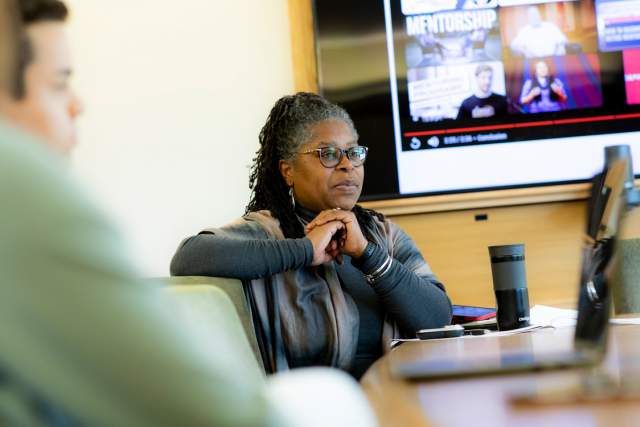A talented cohort of new professors has joined the Dartmouth faculty this year, breaking new ground in labs and classrooms across campus.
Some 43 strong, the tenured and tenure-track professors are power-probing sociologists, forward-thinking researchers in quantitative social science, biomedical engineering, and cybersecurity, and thought-provoking writers in such fields as Indigenous modernism and Asian American culture.
At Tuck, seven new faculty are exploring timely topics such as the role artificial intelligence plays in online platform operations, social group membership perceptions, labor market inequality, and leading diverse organizations.
“We are delighted to have so many accomplished, innovative new faculty members helping to drive research to new levels and knowledge to new fields at Dartmouth,” says President Sian Leah Beilock, a cognitive scientist and a professor of psychological and brain sciences.
“I look forward to working with them for years to come as we expand Dartmouth’s impact on education and improve the world we live in.”
Read on to meet Tuck’s newest faculty. See the full list of new faculty at Dartmouth.
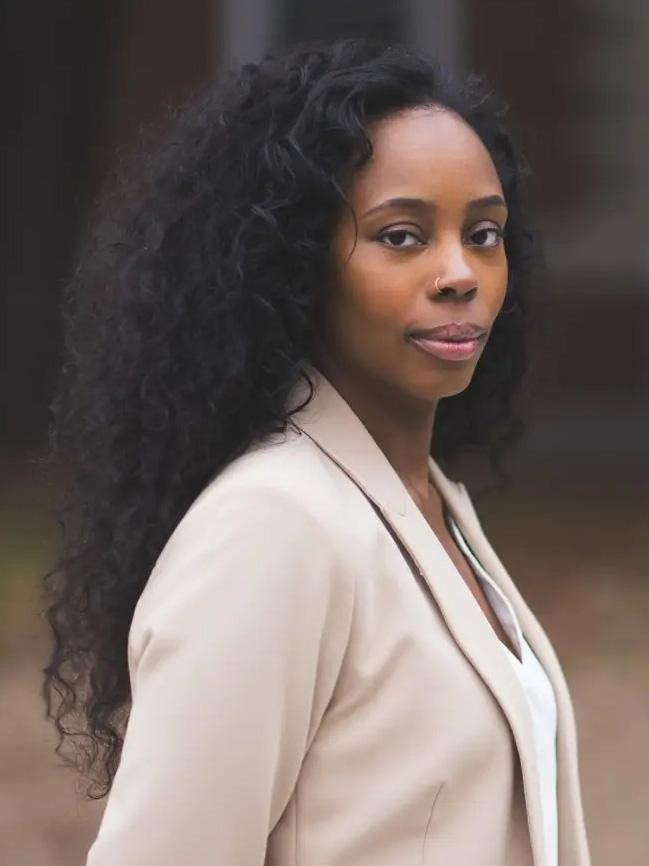
Tianna Barnes
Assistant Professor of Business Administration, Organizational Behavior Group
Education: BA, University of North Carolina at Chapel Hill; PhD, University of Minnesota
My research explores how people make sense of multiple social identities, with an emphasis on social group membership perceptions. The connection, association, and relationship people have with their social identity groups (i.e., membership perceptions) has implications for how they then engage with those social identities. I’m most curious about that process; specifically, how individual’s think about themselves as “one part of a whole,” or one member of a larger social group. With this, I explore two broader questions: 1) How do non-work and work-related social identity group membership perceptions interact? 2) What are the work consequences and managerial implications of those interactions? I also consider these outcomes at different work stages, such as the organizational newcomer experience versus that of established organizational members.
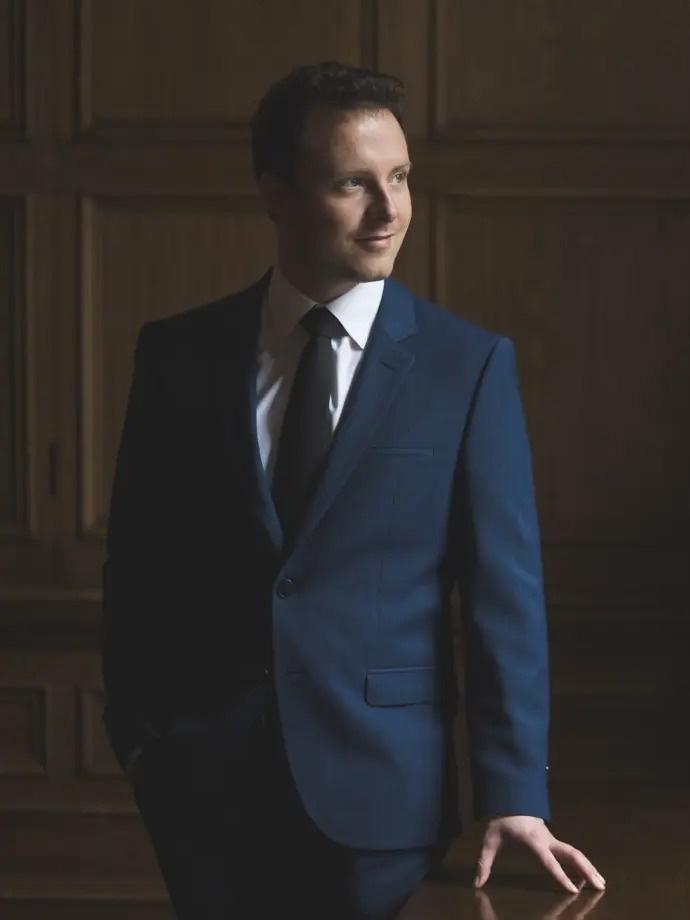
Franz Hinzen
Assistant Professor of Business Administration
Education: BS, University of Mannheim; MPhil, University of Cambridge; PhD, New York University Stern School of Business
My research focuses on financial intermediation and banking. For a very large part of the corporate loan market, banks have evolved away from their traditional role as commercial banks. Rather than lending to firms directly, they serve as investment banks which market loans to nonbank financial institutions. In my research, I study how corporate loan markets function with this market structure, and I investigate how bank-nonbank interactions shape the terms at which firms borrow.
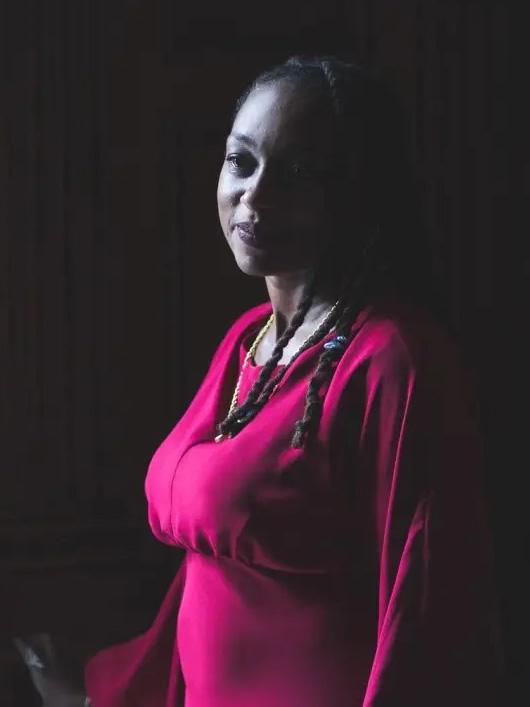
Michelle Kinch
Assistant Professor of Business Administration, Operations and Management Science
Education: BS, Massachusetts Institute of Technology; MBA, Harvard Business School; DBA, Harvard Business School
My expertise is in the area of behavioral operations management. I use both laboratory and field experiments to develop insights into how firms optimally balance operational efficiency and service satisfaction goals in service design—particularly in emotional service settings.
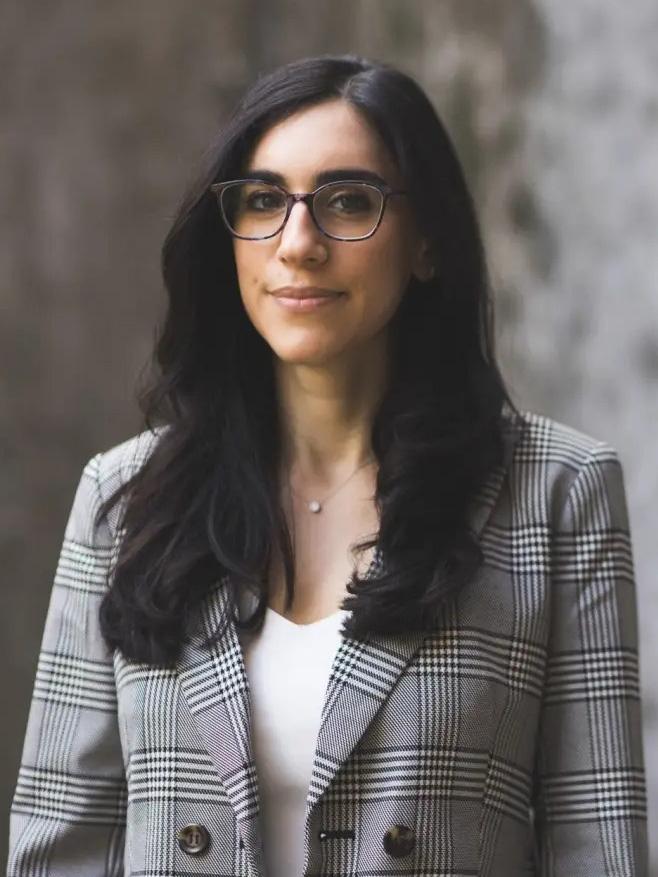
Julia Melin
Assistant Professor of Business Administration, Organizational Behavior Group
Education: BA, Swarthmore College; MA, Stanford University; PhD, Stanford University
My expertise is in the areas of gender, career transitions, and labor market inequality. In my work, I use mixed-methods, online experiments, and large-scale digital interventions in real-world settings (including Fortune 500 companies and online career training platforms) to examine 1) how perceptions of gender influence organizational practices, including hiring and talent assessment and 2) how organizational practices can be designed to reduce gender inequality and improve women’s organizational advancement.

Sonya Mishra
Assistant Professor of Business Administration, Organizational Behavior Group
Education: BA, Georgetown University; MA, University of California, Berkeley, Haas School of Business; PhD: University of California, Berkeley, Haas School of Business
My research investigates how demographic diversity operates within hierarchies to shape perceptions and workplace outcomes of underrepresented individuals. For instance, I find that power-seeking women are less likely to face backlash when they desire status (i.e., respect) in addition to power (control over resources). My dissertation found that men, but not women, perceived their organizations as less inequitable as they rose in hierarchical rank.

Hart Posen
Professor of Strategy and Entrepreneurship
Education: BS, University of Manitoba; MBA, Ivey School of Business, University of Western Ontario; MSc, Wharton School, University of Pennsylvania; PhD, Wharton School, University of Pennsylvania
I study strategy and entrepreneurship to understand how firms create and leverage knowledge to gain an advantage over rivals—and why some firms fail to do so. I am particularly interested in how entrepreneurs learn about the merits of their ideas and how firms can use strategic imitation to leverage their rivals’ knowledge and ideas. My research uses computational social science methods in that I develop theoretical models of how collective intelligence emerges and evolves in organizations via learning processes. My interest in these topics was spurred by the decade I spent as an entrepreneur in the technology and retail sectors before earning my PhD.
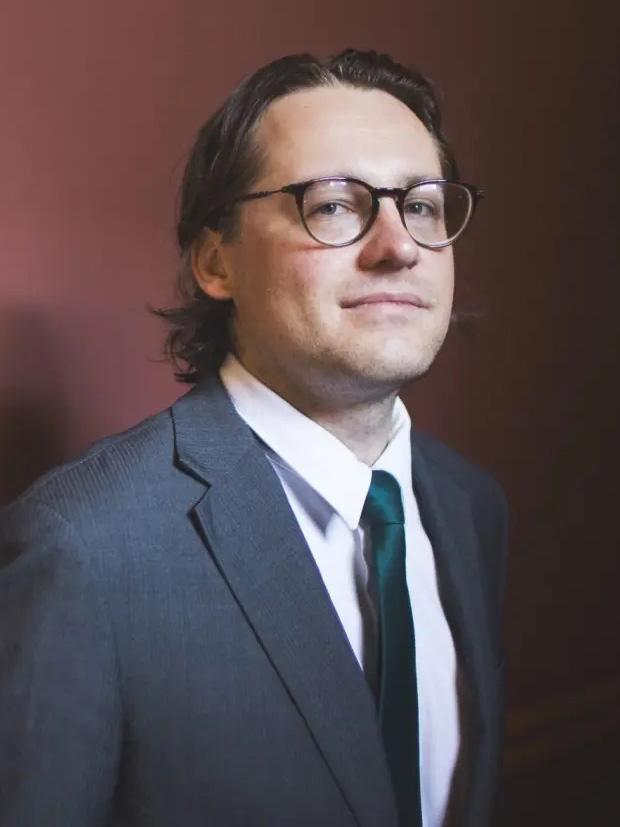
James Siderius
Assistant Professor of Business Administration, Operations and Management Science
Education: AB, Princeton University; MS, Massachusetts Institute of Technology; PhD, Massachusetts Institute of Technology
My research lies at the interface of operations research, computer science, and economics, and broadly studies the role artificial intelligence plays in online platform operations. Through examining the strategic interplay between platforms, algorithms, and users, my work provides an understanding of the social impact of new technologies and offers prescriptive insights for more responsible business practices. The research spans topics such as online misinformation, information design for dating apps, and social media matching algorithms.

